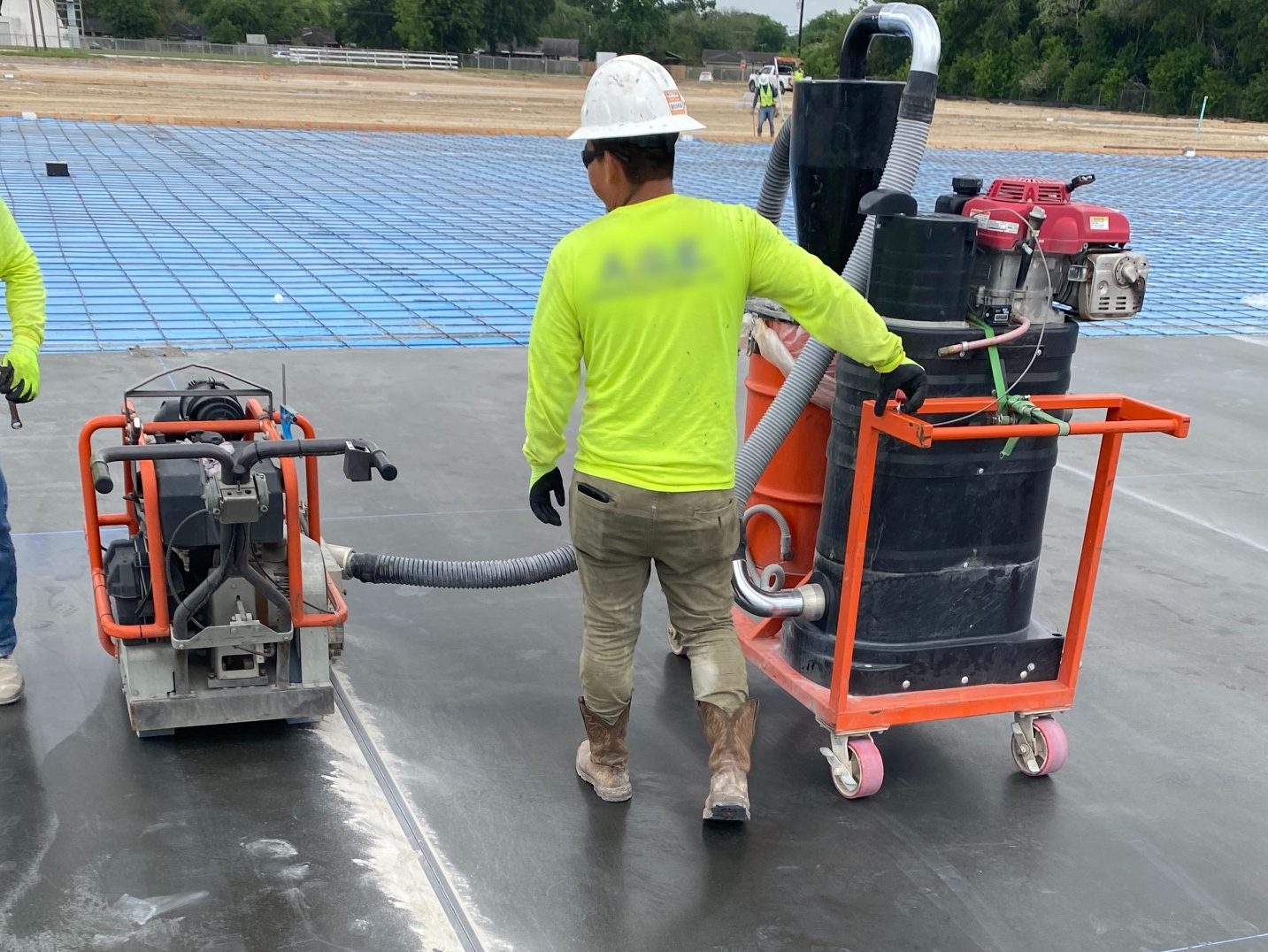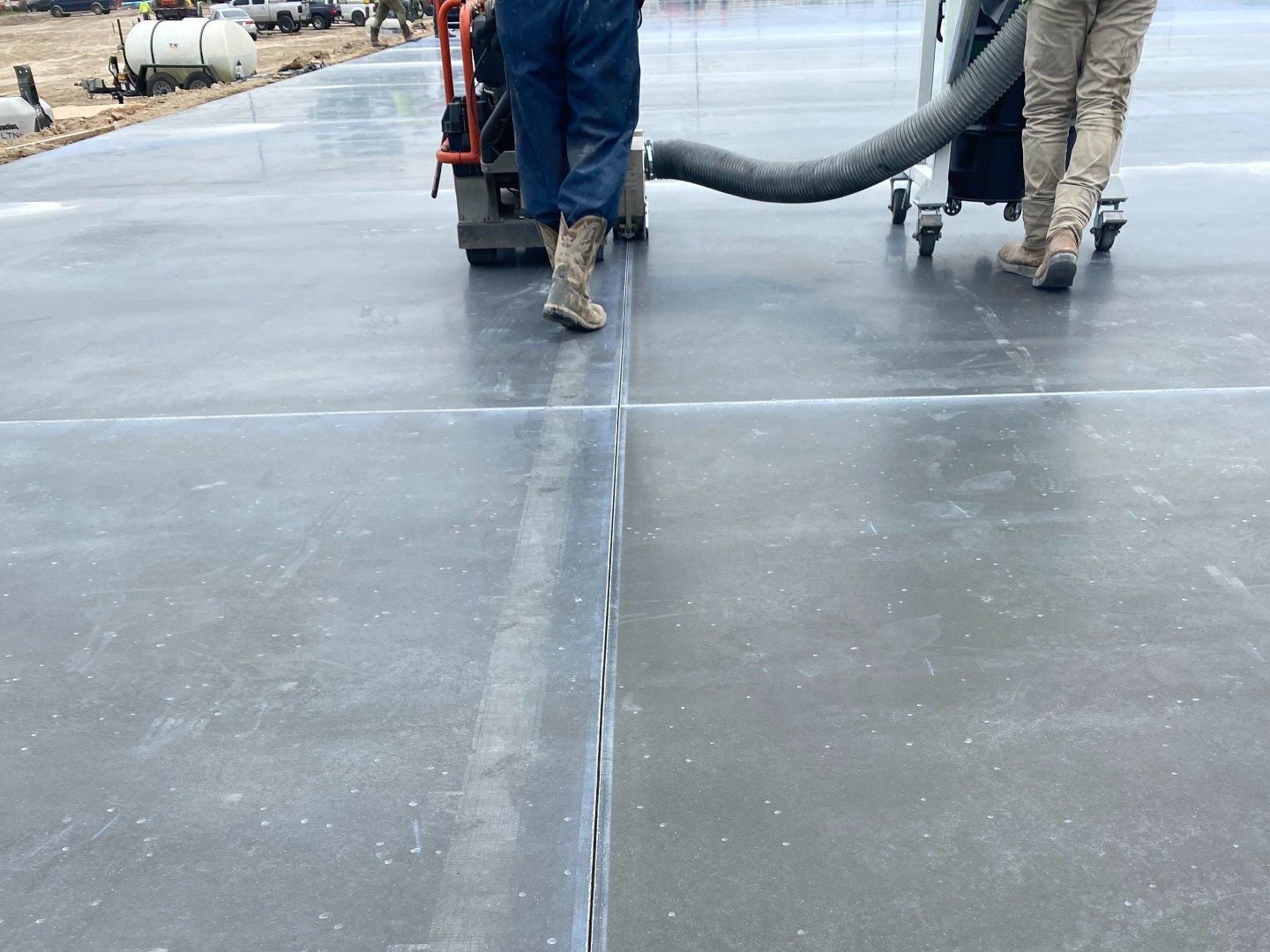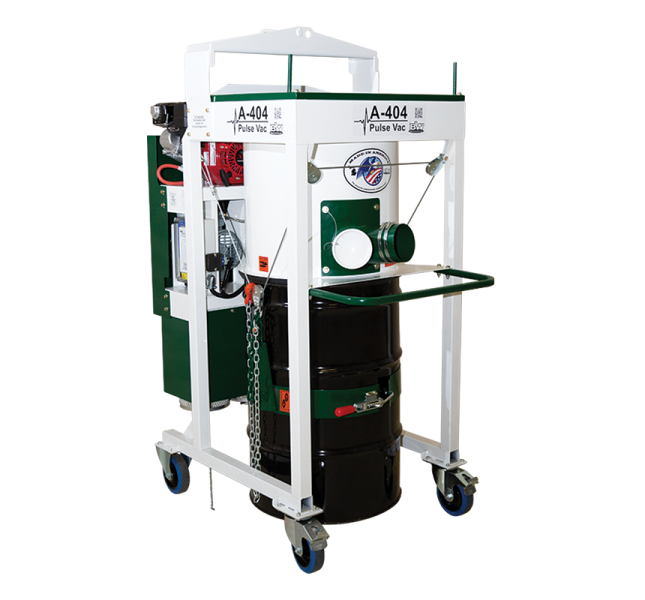How to Pick the Right Vacuum For Concrete Cleanup
Dust particles are inevitable after finishing up your concrete projects. From cracks and crevices to corners and surfaces that surround the project area, they’ll be scattered around. This is not only a pain to clean up but it can also be detrimental to your respiratory health.
No matter how much dust there is, you need to prepare yourself with the right equipment to clean up your project area extensively. This is why we will give you a rundown on how to pick the right vacuum for concrete cleanup.
What is a Concrete Vacuum?
First things first, it is important to understand what a concrete vacuum is.
Vacuums are generally used the entire time you are cutting, grinding, or blasting. The hose from the vac goes directly into a port on the grinder or saw so there is literally no dust contact with the air.
Smaller grinders, saws and blasters do not have their own vacuum. That is why you see there is a hose connected from the saw to the vacuum. The goal of these kinds of projects is to vacuum as you go leaving you with minimal to no clean-up after you are done.
The cleaning of the concrete dust and debris that is produced during the polishing, grinding, and cutting could be a nightmare to masonry and construction workers alike. It seems like the task of putting the concrete blocks together is simple till it is time for the cleaning. So here are a few things you should consider when picking the right concrete vacuum.
Will You Work in a Remote Location?
First of all, you should know if you will be working in a remote location or if you will have limited access to energy. As obvious as this might sound, preparing for working in a remote location can make or break your project.
Don’t worry, if you have limited access to the energy you can always pick out a concrete vacuum that uses gas or is propane-powered. If this is the case for you, you’ll have to remember to prepare accordingly for this kind of vacuum and make sure that you have enough gas and propane to finish up your project.
Will Sludge or Liquids Be Involved?
Even though we are mostly worried about dust collection, some project sites will have you dealing with sludge and liquids. Some projects, such as repairing the separation of concrete chips, will require the use of water to clean up the project area.
If this is the case, it is important for you to choose a wet/slurry industrial vacuum. These kinds of vacuums are incredible not only for collecting any dust but also for pumping out liquids at the same time, making your job way easier and cleaner.
Will You Need a HEPA Filter?
HEPA is a type of pleated mechanical air filter. It is an acronym for “high-efficiency particulate air filter”. To understand how a HEPA filter works, think of it as a mesh of tangled fibers. The sheets of fibers are usually folded into pleats to increase the surface area and filter life. Air flows through the fibers, where unwanted particles are separated and collected. However, HEPA filters only catch particles of a specified size.
The standard HEPA filters you see for air filtration actually have tiny pieces of glass embedded into the filter material.
Some concrete vacuums have filters that do not have glass pieces in them due to the possibility of the pulsation system damaging the glass particles. However, the filtration specs, capture rating, and lifetime are comparable to other HEPA filter requirements.
Ultimately, HEPA filters are not entirely necessary for your projects. That being said, it is important for you to do some research about the vacuum specifically, to make sure it meets all the requirements to complete your projects efficiently.
Understand How Much Vacuum Power You Need
As no surprise, working in larger areas produces more debris and dust. That means you’ll need more vacuum power. We recommend a concrete vacuum that gives you at least 110 volts of energy. If your area is very large, you will be looking at 220 volts or even a propane-powered vacuum.
In addition to voltage, you’ll want to look at how much air is moving through the vacuum. The more airflow, the more power is required, which is measured in cubic feet per minute, or CFM.
If you wet grind concrete and need something that can remove slurry, you’ll want to consider water lift, which is also called static pressure.
For hand grinders and early entry concrete saws, 25 CFM is required per 1” of the blade. An early entry saw with a 14” blade would require a 350 CFM vac at minimum. Vacs in this range are OSHA compliant.


Final Thoughts
You might be wondering if you can just use a normal shop vacuum to clean up after your projects. Even though you can, you shouldn’t. Besides taking into consideration various factors involving your projects you also need to think about your own safety and efficiency.
Always remember that concrete dust is toxic and you should always take the proper precautions for it. You also don’t want your machines to break down often, as this would not be time or cost-efficient for you and your business. Always look for the best, most efficient vacuum to meet your needs that will be able to be used for many projects to come.
Not only do you have to keep in mind safety and cost efficiency, but you should also look for ways to minimize your workload in a productive way. Powerful vacuums will result in an easier and more efficient cleanup process. This will increase productivity AND reduce labor costs.
BW Pulse Concrete Vacuums

At BW Manufacturing Inc., we pride ourselves on our selection of top-of-the-line industrial equipment.
The suction and filtration rate of our vacuums are unparalleled and are the industrial standard. There is a reason why construction and masonry contractors keep coming back and referring their friends to our concrete dust vacuums.
Our B-202 and A-404 are the strongest vacs in the market. The CFM is important, but the biggest advantage is our pulsation system.
Our concrete vacuums are unlike any other vacuum on the market today. The built-in air pulsation system continuously cleans the air filter, making it ideal for the removal of fine dust powders without clogging.
If you are a contractor who’s in the market for a vacuum that is tough and proven enough for your concrete jobs, then look no further. Check out our selection of industrial concrete vacuum equipment!
Back To Blog
